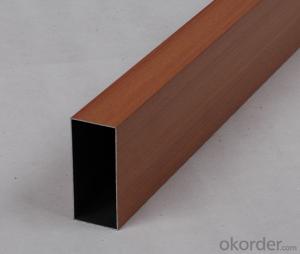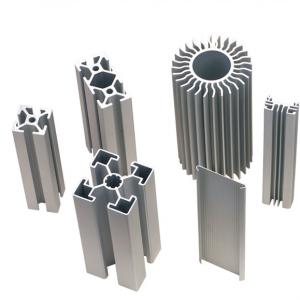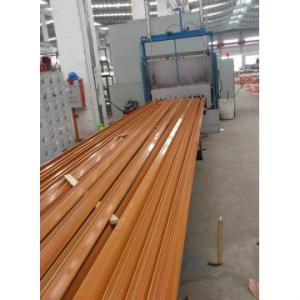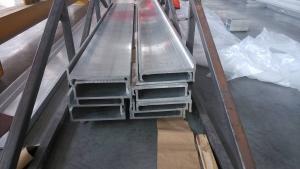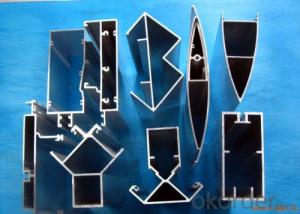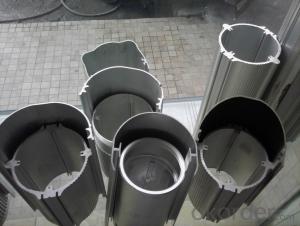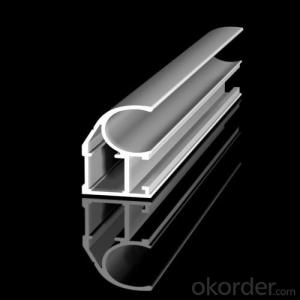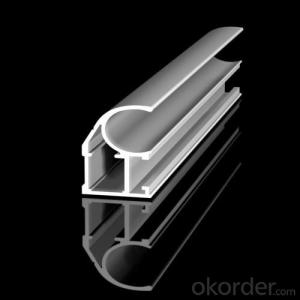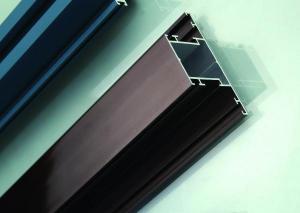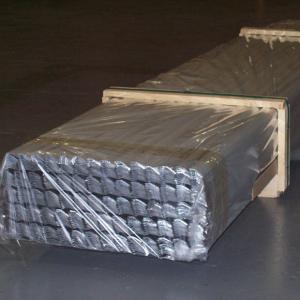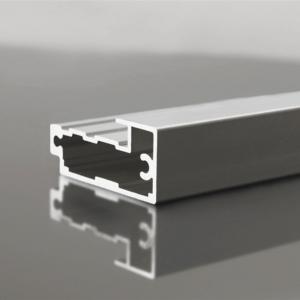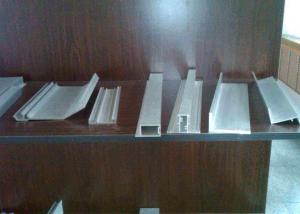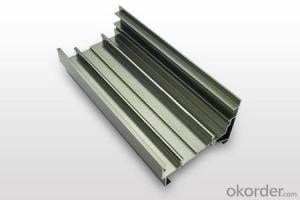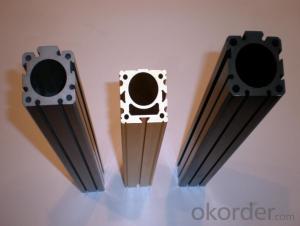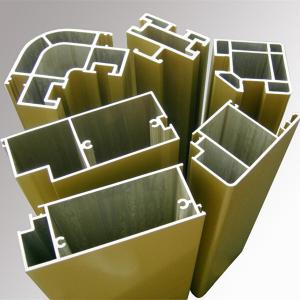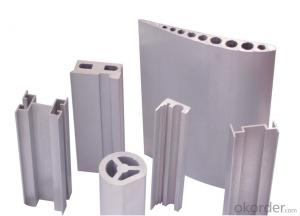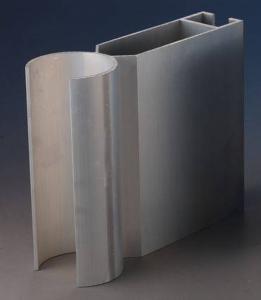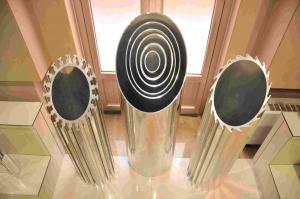Coated Aluminium Square Tubes for Furniture
- Loading Port:
- Shanghai
- Payment Terms:
- TT OR LC
- Min Order Qty:
- 5 m.t.
- Supply Capability:
- 1000 m.t./month
OKorder Service Pledge
OKorder Financial Service
You Might Also Like
Name:aluminum tube&aluminum pipe
Material | 1000series,2000series,3000series.... |
Temper | T4,T5,T6 |
ISO Certificate | ISO9001:2008,SGS |
Size | The size are available in accordance with customers' options. |
Mill finish, Powder Coating, Anodizing, Sandblasting Anodizing, | |
Surface Processing | Cataphoresis, Sandblasting Cataphoresis, Wooden Print etc. |
Shape | round pipe |
Use | Building,Machine,Decoration,etc |
Color | Silver,Golden,Black,Red,Blue a,etc |
Packing: | Export sea worthy package |
Delivery: | Within 30 days after receiving 30%T/T of deposit or L/C |
MOQ: | 1 Metric Ton/Metric Tons |
Price terms: | FOB, CFR, CIF |
Payment terms: | T/T, L/C |
Application | aluminum pipe applies to Structural use ,roofing, commercial use, household appliance, industry, family etc |
Quality control: | a)Mill Test Certificate is supplied with shipment. b)Third party inspection is highly welcomed. |
- Q:The latest list of aluminum China
- Lear aluminum is also good Oh, A Well-Known Trademark in China, China energy-saving innovation enterprise ten, Hebei enterprises in Handan
- Q:Are aluminum profiles suitable for use in the renewable energy industry?
- Yes, aluminum profiles are suitable for use in the renewable energy industry. Aluminum is a versatile and lightweight material that offers several advantages for renewable energy applications. Firstly, aluminum profiles have excellent corrosion resistance, making them suitable for use in outdoor environments where they may be exposed to moisture or harsh weather conditions. This durability ensures that the profiles can withstand the test of time and maintain their structural integrity. Furthermore, aluminum profiles are highly recyclable, making them an environmentally friendly choice for the renewable energy industry. As the industry strives to reduce its carbon footprint and promote sustainability, the recyclability of aluminum helps in achieving these goals. Aluminum can be recycled repeatedly without losing its essential properties, which reduces the need for extracting and processing new raw materials. Aluminum profiles also offer design flexibility, allowing for the creation of complex shapes and structures that can be customized to meet specific requirements. This versatility makes them suitable for various renewable energy applications, such as solar panel frames, wind turbine components, and mounting systems. Additionally, the lightweight nature of aluminum profiles simplifies transportation and installation processes, reducing costs and energy consumption. In summary, aluminum profiles are an excellent choice for the renewable energy industry due to their corrosion resistance, recyclability, design flexibility, and lightweight properties. These attributes contribute to the overall efficiency, durability, and sustainability of renewable energy systems, making aluminum profiles a suitable material for use in this industry.
- Q:How do aluminum profiles perform in terms of heat resistance?
- Aluminum profiles possess commendable heat resistance properties, as they possess a relatively high melting point of 660.3°C (1220.5°F) and demonstrate a low coefficient of thermal expansion. These characteristics enable aluminum profiles to endure elevated temperatures without experiencing notable distortion or structural harm. Consequently, aluminum profiles are well-suited for diverse applications that demand heat resistance, including heat sinks, automotive components, and industrial equipment. Furthermore, aluminum's exceptional thermal conductivity facilitates effective dissipation of heat, further augmenting their performance in environments characterized by high levels of heat. Nevertheless, it is imperative to acknowledge that aluminum's heat resistance does not match the level of certain other metals like steel or titanium, thereby necessitating the consideration of alternative materials in exceedingly high-temperature scenarios.
- Q:How is the aluminum alloy profile series divided?
- According to alloy composition.1 pure aluminum, such as 1100,2 series aluminum alloy3 Series al Mn alloys, such as 3003, 3A214 series Al Si alloy5 Series Al Mg alloy6 series Al Mg Si alloy, such as 606360617 Series Al Zn Alloy8 lines, others9 line standby
- Q:Can aluminum profiles be used in marine environments?
- Yes, aluminum profiles can be used in marine environments. Aluminum is often chosen for its excellent corrosion resistance and lightweight properties, making it ideal for marine applications. It is commonly used in the construction of boats, shipbuilding, and offshore structures due to its durability and ability to withstand exposure to saltwater and harsh weather conditions.
- Q:In aluminum processing, countersunk holes and via holes what difference?
- Through holes in the positioning hole, the screw hole, and the screw cap is countersunk hole sink don't come out.AskI can't understand you..Chasing the answerThe countersunk head is where the screw cap sinks and the through-hole is threaded to avoid the hole
- Q:Are there any fire safety considerations when using aluminum profiles?
- Fire safety considerations must be taken into account when utilizing aluminum profiles. Although aluminum is not combustible, it can still contribute to the spread and intensity of a fire. Aluminum profiles, particularly in construction or industrial settings, can act as fuel for a fire and potentially worsen its severity. One crucial consideration is the fire rating of the aluminum profiles. Fire ratings indicate how long a material can withstand fire exposure before failing. It is vital to choose aluminum profiles with appropriate fire ratings that match the specific application requirements. This guarantees that the profiles can delay the fire's spread, providing valuable time for evacuation and firefighting efforts. Another consideration is the use of suitable insulation materials. Aluminum profiles are often used in building facades, curtain walls, and other structural applications. In these cases, it is important to ensure that the insulation materials used with the aluminum profiles are fire-resistant. This prevents the fire from spreading through the building envelope and reduces the risk of structural failure. Furthermore, fire safety measures should be implemented during installation. Proper firestopping techniques should be applied to seal any gaps or penetrations around the aluminum profiles. This prevents flames, smoke, and hot gases from passing from one compartment to another, limiting the fire's spread. Regular maintenance and inspection of the aluminum profiles are also crucial for fire safety. Any damage or deterioration should be promptly addressed to prevent potential fire hazards. Additionally, adequate fire detection and suppression systems should be in place to detect and control fires in a timely manner. Overall, although aluminum profiles themselves are not combustible, it is imperative to consider various fire safety measures when using them in construction or industrial applications. By selecting suitable fire-rated profiles, using fire-resistant insulation materials, employing proper installation techniques, and conducting regular inspections, the risk of fire can be minimized, ensuring the safety of occupants and property.
- Q:What are the fireproofing properties of aluminum profiles?
- Aluminum profiles possess outstanding fireproof properties, which contribute to their widespread use in various applications. Being a non-combustible material, aluminum neither burns nor aids in the propagation of fire. An exceptional characteristic of aluminum profiles is their high melting point, which exceeds that of most flammable substances at approximately 660 degrees Celsius (1220 degrees Fahrenheit). This quality enables aluminum to endure elevated temperatures without compromising its structural integrity or being susceptible to ignition. Moreover, aluminum naturally develops a protective oxide layer on its surface, acting as a shield against heat and flames. This oxide layer offers added fire resistance by impeding direct contact between the aluminum and the source of fire. In the event of a fire, aluminum profiles assist in confining and limiting the spread of flames due to their lack of combustible gas emission and absence of toxic fume production. As a result, they prove to be a secure choice for applications where fire safety holds utmost importance, such as in the construction of buildings, transportation vehicles, and industrial equipment. In conclusion, the fireproof properties of aluminum profiles establish them as a reliable and long-lasting material in environments prone to fire, providing assurance in terms of safety and protection.
- Q:Are aluminum profiles suitable for use in electronics manufacturing?
- Yes, aluminum profiles are suitable for use in electronics manufacturing. Aluminum is a lightweight yet durable material that offers excellent thermal conductivity, making it ideal for dissipating heat generated by electronic components. Its high strength-to-weight ratio allows for the creation of sturdy and lightweight structures, which is advantageous in electronics manufacturing where weight reduction is often desired. Additionally, aluminum profiles can be easily machined, welded, and formed into various shapes, providing flexibility in design and customization. The corrosion resistance of aluminum also ensures longevity and reliability in electronic devices. Overall, the properties of aluminum make it a suitable choice for use in electronics manufacturing.
- Q:Can aluminum profiles be used for industrial workbenches?
- Yes, aluminum profiles can be used for industrial workbenches. Aluminum is a lightweight and durable material that is commonly used in industrial applications. It offers excellent strength-to-weight ratio, corrosion resistance, and can be easily customized to suit specific needs. Additionally, aluminum profiles can be easily assembled and disassembled, allowing for flexibility and easy modifications to the workbench layout.
1. Manufacturer Overview |
|
|---|---|
| Location | |
| Year Established | |
| Annual Output Value | |
| Main Markets | |
| Company Certifications | |
2. Manufacturer Certificates |
|
|---|---|
| a) Certification Name | |
| Range | |
| Reference | |
| Validity Period | |
3. Manufacturer Capability |
|
|---|---|
| a)Trade Capacity | |
| Nearest Port | |
| Export Percentage | |
| No.of Employees in Trade Department | |
| Language Spoken: | |
| b)Factory Information | |
| Factory Size: | |
| No. of Production Lines | |
| Contract Manufacturing | |
| Product Price Range | |
Send your message to us
Coated Aluminium Square Tubes for Furniture
- Loading Port:
- Shanghai
- Payment Terms:
- TT OR LC
- Min Order Qty:
- 5 m.t.
- Supply Capability:
- 1000 m.t./month
OKorder Service Pledge
OKorder Financial Service
Similar products
New products
Hot products
Hot Searches
Related keywords
